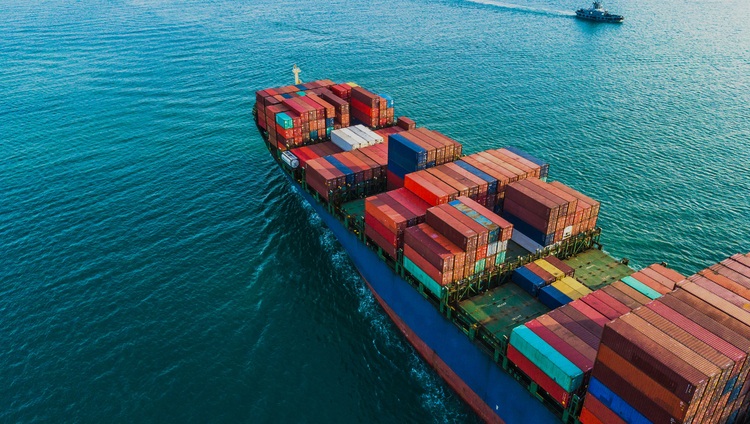Trans-Caspian branch of the North–South corridor loses TEU
08.06.2024

The demand for cargo delivery from India, the United Arab Emirates, as well as other Asian and Middle Eastern countries via the North-South trans-Caspian branch of the ITC is decreasing, follows from the PEC review prepared jointly with Rusiranexpo Group, GLT, Prime Shipping Agency and GTL.
One of the main reasons is the acute shortage of container ships in the Caspian basin, according to Gennady Chichin, Director of the Asian direction of PEC: GLOBAL. Currently, there are about 220 vessels cruising in the direction, the average age of which is 30 years, added Alexander Sharov, General Director of Rusiranexpo. Most of them are intended for the transportation of bulk and bulk cargoes, including ore, coal, grain, oil, liquefied gases and foodstuffs, said Alexey Dolmatov, Director of relations with partners and suppliers of GLT. According to Rusiranexpo estimates, in order to attract cargo traffic, it is important to double the capacity in the direction – up to 480 vessels. In addition, there are still no regular sea services and a stable linear schedule on the North-South trans-Caspian branch of the MTK between Russia and Iran, Alexey Dolmatov outlined the problem.
 The demand for cargo delivery from India, the United Arab Emirates, as well as other Asian and Middle Eastern countries via the North-South trans-Caspian branch of the ITC is decreasing, follows from the PEC review prepared jointly with Rusiranexpo Group, GLT, Prime Shipping Agency and GTL.
One of the main reasons is the acute shortage of container ships in the Caspian basin, according to Gennady Chichin, Director of the Asian direction of PEC: GLOBAL. Currently, there are about 220 vessels cruising in the direction, the average age of which is 30 years, added Alexander Sharov, General Director of Rusiranexpo. Most of them are intended for the transportation of bulk and bulk cargoes, including ore, coal, grain, oil, liquefied gases and foodstuffs, said Alexey Dolmatov, Director of relations with partners and suppliers of GLT. According to Rusiranexpo estimates, in order to attract cargo traffic, it is important to double the capacity in the direction – up to 480 vessels. In addition, there are still no regular sea services and a stable linear schedule on the North-South trans-Caspian branch of the MTK between Russia and Iran, Alexey Dolmatov outlined the problem.
The demand for cargo delivery from India, the United Arab Emirates, as well as other Asian and Middle Eastern countries via the North-South trans-Caspian branch of the ITC is decreasing, follows from the PEC review prepared jointly with Rusiranexpo Group, GLT, Prime Shipping Agency and GTL.
One of the main reasons is the acute shortage of container ships in the Caspian basin, according to Gennady Chichin, Director of the Asian direction of PEC: GLOBAL. Currently, there are about 220 vessels cruising in the direction, the average age of which is 30 years, added Alexander Sharov, General Director of Rusiranexpo. Most of them are intended for the transportation of bulk and bulk cargoes, including ore, coal, grain, oil, liquefied gases and foodstuffs, said Alexey Dolmatov, Director of relations with partners and suppliers of GLT. According to Rusiranexpo estimates, in order to attract cargo traffic, it is important to double the capacity in the direction – up to 480 vessels. In addition, there are still no regular sea services and a stable linear schedule on the North-South trans-Caspian branch of the MTK between Russia and Iran, Alexey Dolmatov outlined the problem.